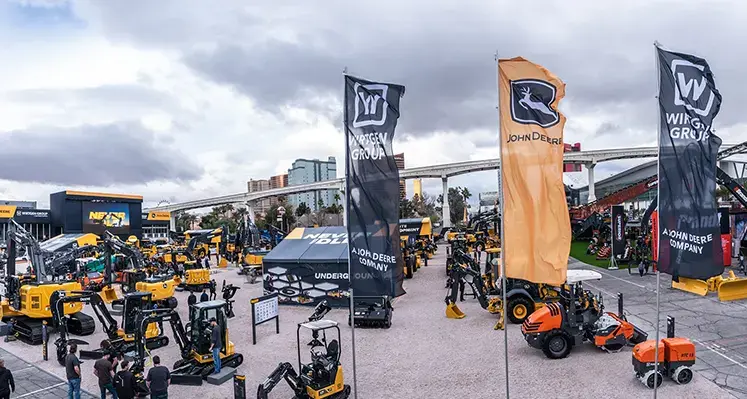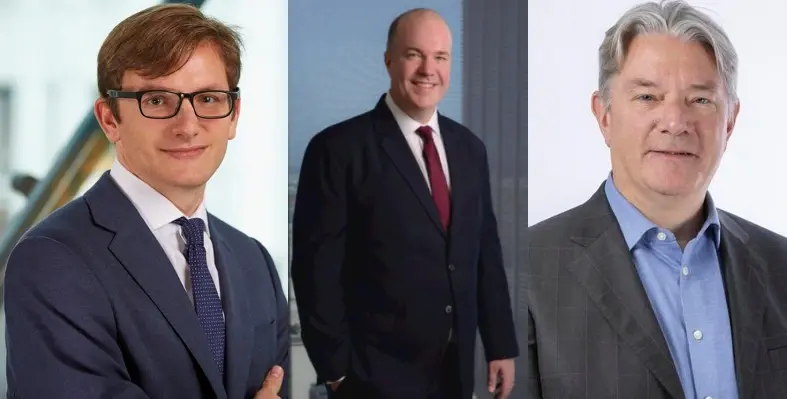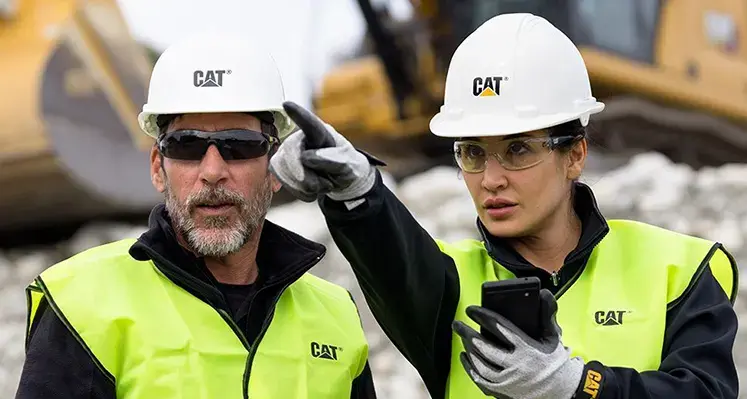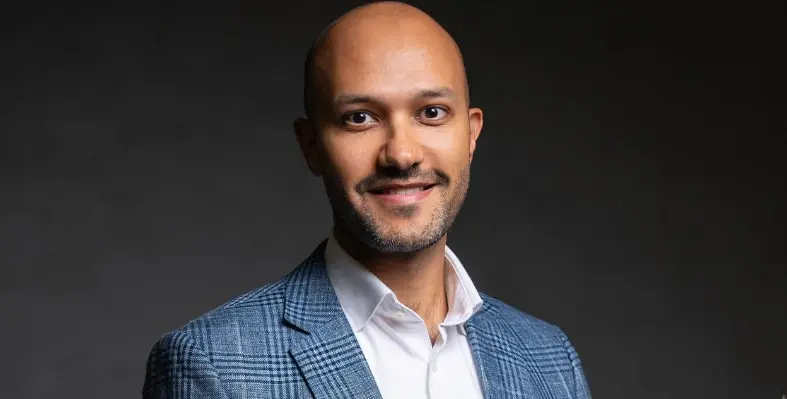Wirtgen Group and John Deere are set to make a major impact at Conexpo 2026, unveiling six market premieres and three global firsts alongside a broad portfolio of advanced machines, automation systems and digital solutions
With a total of 24 world and market premieres on display, the joint exhibition will focus on boosting productivity, transparency and profitability across road construction, earthworks and materials processing.
Visitors to the shared stand (Silver Lot SV2415) will experience a construction site-centric showcase, including a dedicated presentation of the John Deere Operations Center located on the ground floor of the Innovation Center. Designed as a central digital hub, the platform consolidates machine, job and performance data in one place. The exhibit will also highlight a comprehensive suite of digital aftermarket solutions on the upper floor.
A total of 14 Wirtgen Group machines will feature the latest automation and data-driven technologies, including the Wirtgen Group Performance Tracker combined with solutions such as AutoPilot 2.0, Smart Level Pro, Smart Pave, Smart Compact Pro and SPECTIVE CONNECT. These technologies automate workflows while capturing and analysing performance data, enabling more efficient, transparent and cost-effective execution across every phase of the construction process.
Global firsts and market premieres
Cold milling specialist Wirtgen will introduce a world premiere that opens up an entirely new application area for customers, with full details to be revealed at the start of the exhibition. Also on display will be the new WR X-Tier generation of wheeled cold recyclers and soil stabilisers. These machines cover applications ranging from structural road rehabilitation to soil stabilisation and material consolidation in road construction.
The WR X-Tier series features an intuitive Human-Machine Interface (HMI) that provides interactive digital guidance to improve mixing quality and productivity. Digital assistants such as MIX ASSIST and Wirtgen Group COPILOT further enhance efficiency while reducing operating costs per square metre.
Vögele will debut the latest Dash 5 paver generation for the North American market, offering improved operator ergonomics, faster setup, higher automation levels and a more efficient drive system. Key highlights include world premieres in the 10 ft class: the SUPER 2000-5 X tracked paver and the SUPER 2003-5 X wheeled paver, both equipped with newly developed screeds. The range is complemented by the SUPER 2100-5 X, featuring a high-compaction screed suited for roller compacted concrete applications.
In the Mini Class segment, Vögele will present the SUPER 800-5 P, the successor to the SUPER 700. This compact Dash 5 paver introduces the ErgoBasic 5 operating concept and a redesigned hopper wall geometry that improves visibility and loading flexibility. All Dash 5-X-Tier pavers can be fitted with the latest digitalisation and automation solutions.
Automation and precision compaction
Hamm will focus on automated compaction technologies, highlighting enhancements to the Smart Compact system. Smart Compact Pro now integrates real-time asphalt density measurement through the new Realtime Density Scan function, enabling automated adjustment of compaction energy and modes on HD+ and HX series tandem rollers. Operators can monitor density development in real time across the entire jobsite, including during static compaction.
This capability supports precise compliance with specifications, reduces the risk of penalties and lowers overall project costs while contributing to longer pavement service life. Hamm will also introduce solutions for earthworks, including automated amplitude adjustment based on new measurement values, and a new compactor model designed specifically for the North American rental market.
Materials processing and digital connectivity
For materials processing, Kleemann will present the MOBISCREEN MSS 1102 PRO scalper, making its North American debut. Designed for quarry applications, the PRO Line screening plant handles throughput of up to 750 t/h and features an intuitive control system that minimises operating errors and training time. Remote operation enhances safety, while the optional Dual Power drive allows for all-electric operation.
Kleemann screening plants can now be equipped with SPECTIVE CONNECT, providing operators with real-time machine data via smartphone. The integrated stockpile monitoring function offers clear visibility of material status, improving productivity and site coordination.
John Deere Operations Center as the digital backbone
At the core of the digital offering is the John Deere Operations Center, which brings together all data required for end-to-end construction site management. Project data can be transferred directly to machines via the integrated Work Planner, enabling partially automated execution. Users gain continuous insight into project progress through performance data generated by Wirtgen Group Performance Tracker solutions covering milling, paving, compacting, crushing and stabilising.
With smart hardware and software, existing machines can be quickly retrofitted to capture and document performance data. These digital solutions help contractors meet reporting requirements with minimal additional effort, reducing administrative burden while streamlining daily operations.













